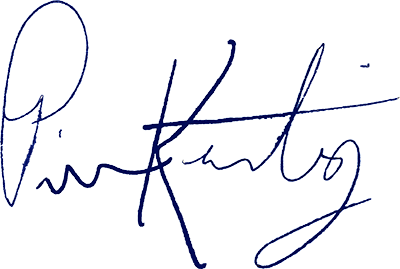When we’re young, life is simple.
We find ourselves taking piano lessons, or dance, or art, or soccer. If we show a proclivity towards any of these activities, we are encouraged (usually by our parents) to focus on them. “Practice,” they say. “Practice makes perfect.”
We come home from school, or we go to the soccer field, or wherever the particular activity is held, and we practice. We focus on it. We learn tunnel vision. And this works – for a while
As we grow older, we tend to take these habits of focus, of isolating particular activities or points of interest or areas or domains, and to continue employing them into our adulthood. While a lucky few quickly find opportunities early on that allow them to make their chosen field a vocation or a career, the rest of us slowly start to find less and less time for such exclusive focus, as the demands of life start to weigh in and become increasingly more pressing.
We are forced to look to more “practical” answers, to seek security in education, a well-paying job, or any number of other more socially acceptable solutions. As we do this, our childlike interests, the “proclivities” of our youth, tend to get pushed aside, to be swept under the rug.
“We need to make a living,” we say. “We have families,” we say. “Money doesn’t grow on trees,” we say. And some of us may make a valiant effort to keep the focus in the way that we did when we were young. But now it’s just not the same.
The reason that these creative proclivities are given less and less attention as we grow older, however, I believe, is not due to laziness, negligence, or any direct fault of our own. It’s that we’re not taught that the way to keep them alive is not the way that we did it as kids.
As we grow older and start to juggle all of these new demands – job, family, relationships, career, health, and the rest – we start to tell ourselves a story.
“I used to play the piano.”
“I used to paint, but I just don’t have time nowadays.”
“I used to love to act, but it’s just so hard with all of the competition.”
“I used to write my own comedy routines, but now I have a 9 to 5.”
What we don’t realize – and again, this is totally not our fault – is that the ancient childhood activities, those still small lights that have grown dimmer over the years and decades – they still have a role in our lives. Just as we’ve had to make time for our jobs, our families, and our commutes, we can still work in our secret talents.
It’s not too late.
What we’ve been taught is how to focus on one thing to the exclusion of others. What we haven’t been taught is how to combine. See, we’ve spent most of our lives thinking that everything we do is to be treated as its own area, as a distinct department unto itself. And this is true, to an extent. But if we think a little deeper, we can see that this only can serve us from a very one-sided model of the world, one that was introduced to us by our parents, and their parents, and so on.
There’s nothing wrong, per se, with this model. Except that it’s outdated, and it won’t work anymore. It was brought to us with perfectly good intentions, with love, and with caring. But now that we’re all grown up, it’s time to change things up. It’s time to look at the way we live our lives from a different perspective.
The very fact that we have less time, more obligations and commitments, and only so many hours in the day, contains our new answer. Because of these difficult factors, we are now forced to adopt a new strategy, a new approach. If we can feel a desire, however small, to reclaim those things that we used to do, those piano players and dancers and soccer players that we used to be, well, we can start today.
We can reincorporate those proclivities into our lives. And the way we do it, is we realize that they’re actually not so separate from the responsibilities and craziness of Life – the boyfriends, puppies, part-time jobs, car repairs, and trips to the gym.
It’s time to find creative ways to combine our adult lives with our childhood loves. It’s time to learn how to become a writer and a salesman. To become a musician and a promoter. To become a dancer and an accountant. And to realize that these things that may have previously seemed to exclude each other, to be done at separate times, now reinforce each other, make each one stronger, and bleed into every single other area, domain, and field of life.
This doesn’t mean we shouldn’t have a Central Focus. Quite the contrary. A Central Focus will bring clarity, direction, and meaning into each and every one of our endeavors, no matter how seemingly trivial. A Central Focus will help tie all of our actions together and give us a destination on the horizon toward which to trudge. A Central Focus will give us a reason to get out of bed in the morning and fight the battle of the day.
And this is all the more reason that we should start now. Start now, in the midst of the drudgery, the pain-in-the-ass utility bills, the rain, and the slow working day.
Because there’s no reason now to wait until after school to practice.


I always wanted to learn to play the piano, but when I was young, my parents couldn’t afford to pay for lessons. As I grew older, I had so many priorities, and piano lessons were at the bottom. Now, I’m 75 & feel I’m too old to take lessons.😰
Your insightful message hit home with me. I’ve always wanted to learn to play the piano. In fact, I have a very nice piano and organ that I mess around on but can’t actually play.I never felt I had time to take lessons, and now I feel I’m too old to start.